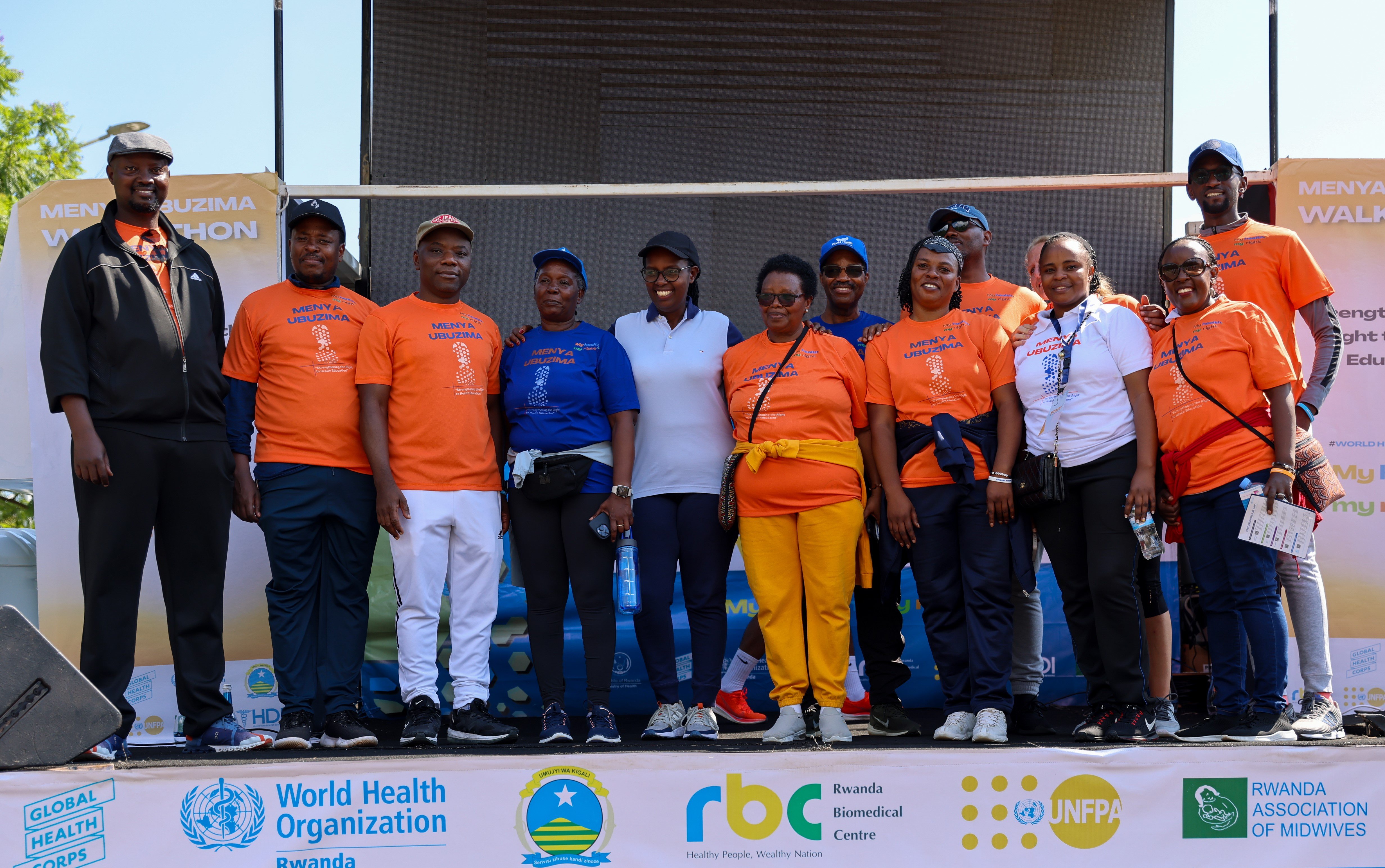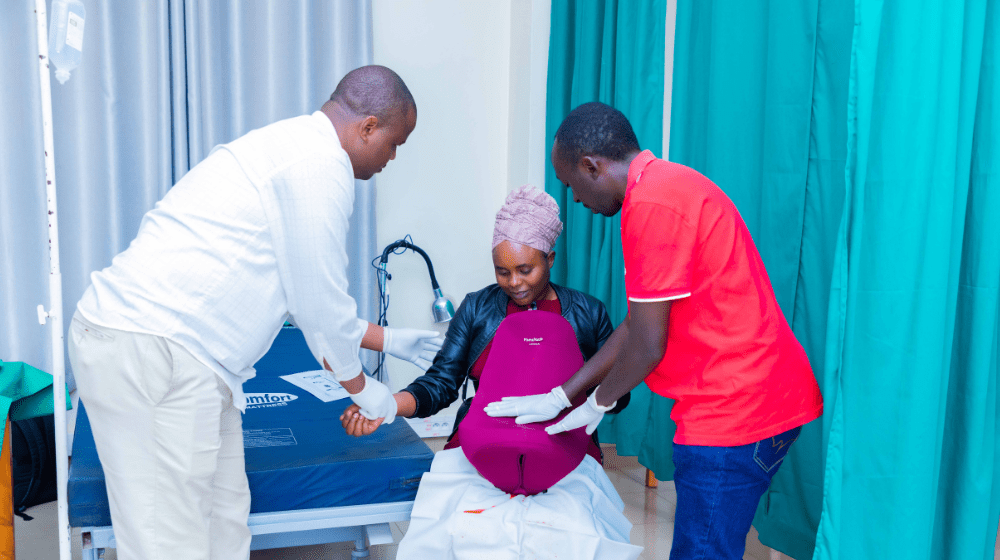On May 5th, Rwanda Joined the world to celebrate the International Day of the Midwife, a day dedicated to recognizing and honoring the critical role that midwives play in maternal and newborn health. This annual celebration serves as a reminder that midwives bring life to the world and save the lives of mothers daily, therefore it is very crucial to invest in their education and training.
Over the past decade, Rwanda has significantly reduced the number of mothers dying from childbirth, from 487 to 203 out of every 100,000 births. Educating midwives has been a key factor in this progress. However, in the last five years, the decline has slowed down(from 210 in 2015 to 203 in 2020). Today, 93% of women give birth in health facilities, but keeping enough staff to maintain this and ensure good care is challenging.
Midwives are essential for safe pregnancies, deliveries, and care after birth for both mothers and babies. To reduce the number of mothers dying during childbirth and improve reproductive health services, midwives need to be well-trained and equipped to follow international standards. The State of the World's Midwifery Report (SoMWY) 2021 underscores the pivotal role of fully educated and regulated midwives. It suggests that with proper education and support, midwives can deliver about 90% of essential sexual, reproductive, maternal, newborn, and adolescent health interventions across the life course. The report further suggests that midwives can avert 65% of maternal, neonatal,deaths and stillbirths, contributing significantly to the country's health outcomes.
An assessment conducted by the Ministry of Health and its partners in 2022 - 2023 revealed significant gaps in the existing midwifery education system. Outdated curricula, lack of competency-based approaches, and a failure to align with international standards were among the key findings.
In response to these issues, The Ministry of Health in collaboration with the United Nations Population Fund (UNFPA), public and private universities, and other partners launched a process to develop a standardized midwifery education curriculum in Rwanda, ensuring competency-based training aligned with both national and international standards.
Over the last 30 years the maternal mortality ratio has decreased significantly in Rwanda. However, in recent years this ratio has plateaued around 200 maternal deaths per 100,000 live births. Our target is to curb this ratio to below 50 by 2050. This requires us to invest more efforts towards globally-networked solutions based on scientific facts in this domain; including to ensure our curriculum documents are well calibrated to address the current realities on the ground. The harmonization of the midwifery curriculum in Rwanda not only will enable us to utilize the available resources more efficiently, but also to embrace more quality in health education. Emphasizes Dr. Menelas Nkeshimana, the Head of the Department for Health Workforce development at the Ministry of Health.
The comprehensive process, initiated in February 2024, commenced with a gap analysis of each curriculum. This analysis served as the foundation for a series of workshops aimed at harmonizing and aligning curricula with both national and international standards, merging existing curricula, defining precise requirements, and ultimately validating the final product.
Throughout this endeavor, particular attention was given to delineating the specific requirements and competencies across various education levels, encompassing advanced diploma, bachelor, and master's programs, to ensure high quality education. Additionally, significant emphasis is placed on facilitating knowledge transfer and capacity building among the national core team, equipping them with the necessary tools to sustain and adapt the curriculum effectively in the future.
On the occasion of the International Day of the Midwife celebration, Dr. Olugbemiga Adelakin, UNFPA Rwanda Representative, underscored the profound impact midwives have on the country's healthcare system. In line with this year’s theme for the International Day of the Midwife, "Midwives: A Vital Climate Solution", he highlighted the pivotal role midwives serve as frontline healthcare providers, particularly amid natural disasters intensified by climate change.
Midwives are instrumental in ensuring health services are more mobile and can reach women with the urgent care they need, even amid extreme weather events and crises. They guarantee the continuity of healthcare services even in the face of the most daunting challenges. Noted Dr. Olugbemiga Adelakin

UNFPA remains dedicated to collaborating with the Ministry of Health on the ambitious “4 by 4” strategy, which aims to quadruple the health workforce in 4 years and to elevate the quality of education through the creation of a standardized curriculum. This initiative includes providing scholarships for midwives at various levels to ensure a well-trained workforce. Additionally, UNFPA is committed to enhancing pre- and in-service capacity building for healthcare professionals, supporting the Rwanda Association of Midwives, advancing the health research agenda, and improving access to integrated Sexual and Reproductive Health and Rights services nationwide.


